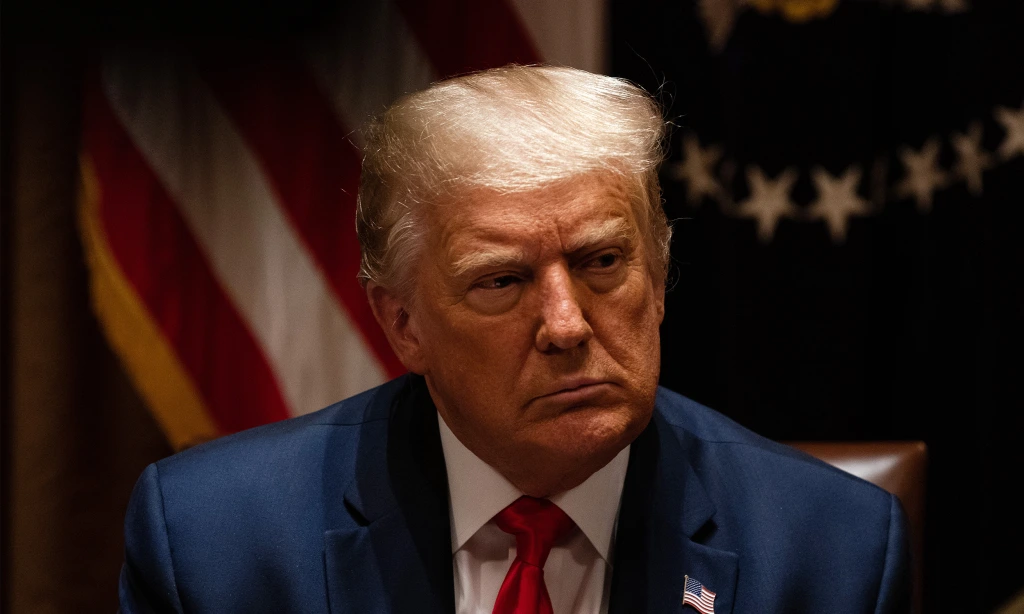Trump Files Lawsuit to Avoid Jan. 6 Committee Subpoena – Former President Donald Trump is suing the House committee investigating the attack on the U.S. Capitol on January 6 in order to avoid complying with a subpoena compelling him to testify. Although former presidents have voluntarily provided testimony or documents in response to congressional subpoenas in the past, “no president or former president has ever been compelled to do so,” according to the suit filed Friday evening.
In a statement announcing Trump’s intentions, his attorney David A. Warrington stated, “Long-held precedent and practice maintain that separation of powers prohibits Congress from compelling a President to testify before it.” Warrington stated that Trump engaged with the committee “in a good faith effort to resolve these concerns consistent with Executive Branch prerogatives and separation of powers,” but that the panel “insists on pursuing a political path, leaving President Trump with no choice but to involve the judicial branch in this dispute between the executive and legislative branches.”
People Also Read: Trump Chief of Staff Meadows Ordered to Testify Before Georgia Grand Jury
The committee declined to comment on the filing, which comes days before the committee-imposed deadline for Trump to begin cooperating. Given that the committee is expected to disband at the conclusion of the January legislative session, the lawsuit is likely serious to Trump’s chances of ever having to testify. It also occurs days before Trump is expected to officially launch his third presidential campaign at his Mar-a-Lago club.
The committee voted to subpoena Trump during its final televised hearing before the midterm elections, and did so formally last month, requiring the former president to testify at the Capitol or via videoconference by mid-November, and for multiple days if necessary. The letter also detailed a broad request for documents, including personal communications between Trump and members of Congress and extremist organizations.
The deadline for Trump’s response was last week, but the nine-member panel extended it to this week. In his suit, Trump’s attorneys argue that the subpoena is overly broad and violates his First Amendment rights. They also argue other sources besides Trump could provide the same information the committee wants from him.
The panel, comprised of seven Democrats and two Republicans, issued a statement last week indicating that it was in contact with Trump’s legal team. The committee’s decision to subpoena Trump in late October marked a significant intensification in its investigation, with lawmakers stating that the move was necessary because, according to their allegations, Trump was the “central player” in a multi-pronged effort to overturn the results of the 2020 election.
“I think that he has a legal obligation to testify but that doesn’t always carry weight with Donald Trump,” committee vice chair Rep. Liz Cheney, R-Wyo., said during an event last week. In addition to requiring Trump to testify, the committee issued 19 requests for documents and communications, including any messages Trump sent via the encrypted messaging app Signal or “any other means” to members of Congress and others regarding the shocking events of January 6, 2021, attack on the Capitol.
People Also Read: U.K. to Celebrate King Charles’ Coronation With Bank Holiday in May, PM Rishi Sunak Announces
The scope of the committee’s request was expansive — pursuing documents from Sept. 1, 2020, two months before the election, to the present on the president’s communications with the groups like the Oath Keepers and Proud Boys — as the panel looks to compile a historical record of the run-up to the Capitol attack, the event itself and the aftermath. Trump’s lawsuit was filed in the Southern District of Florida, where other Trump attorneys successfully sued to secure a special master who will conduct an independent review of records seized by the FBI during a search of Mar-a-Lago on August 8.




